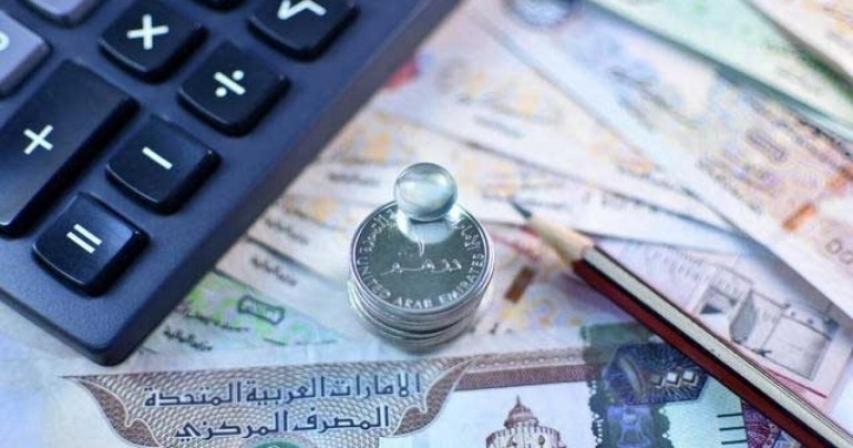UAE taxes, traffic law: 7 new rules that are coming into effect in 2025

As we go into the new year, UAE citizens should note the main regulations in force. The new measures range from 17-year-olds getting driving licences, to compulsory food labelling in Abu Dhabi, and they are all likely to make a major difference in people’s lives.
From legislation to new charges, here’s a rundown of what you can expect to see most this year.
Federal traffic law
A federal decree law on traffic rules will take effect, with the driver’s age minimum slashed one year to 17 years old.
The nation will also ban driving cars with high noise, and it will not permit car horns to be used in urban areas for other than to avoid injury or death.
It also forbids pedestrians to cross roads with a speed limit over 80kmph, under the new rules. The law is deemed not to be broken and the violators will incur civil or criminal consequences, officials explained.
They also issued "deterrent penalties" for fatal crashes in cases of severe infractions. : drunk driving or using any illegal drug; hit and run; jaywalking; driving through a flood zone in a valley.
‘For hazardous material or other special loads, we need a permit from the relevant authority,’ the new law read.
Parking Al Dhaid City for Pay parking
Sharjah Municipality will be offering Paid Parking in Al Dhaid City as from 1st January 2025. The parking will be charged between 8am and 10pm, from Saturday to Thursday.
But parking is free on Fridays, unless you are in one of the areas where charges will be made the rest of the week, including weekends and holidays. The municipality’s decision to implement paid parking is one of several measures the city is taking to make the city better in terms of infrastructure and public spaces more effective.
15% domestic minimum top-up tax
New tax imposed by UAE on multinational companies doing business in Emirates. Big MNEs now have to pay at least effective rate of 15 per cent of profits as tax.
The Ministry of Finance announced that the Domestic Minimum Top-up Tax (DMTT) will be imposed on fiscal years commencing on or after January 1, 2025 to achieve a level tax regime that’s fair and transparent as per international norms.
Nutrition grading system
Starting 1 June mandatory nutrition grades have to be put on five food items as part of a new labelling scheme implemented by quality control and health authorities in Abu Dhabi.
Snacks on supermarket shelves without Nutri-Mark — which scores how nutritious a food is — will be pulled and those responsible fined. That’ll be true even for things that are getting a higher grade than they need to be.
Nutri-Mark scores items in the category A-E, which means it is the most nutritious. First it is baked goods, oils, dairy, children’s food and beverages.
This new system will help to combat obesity by giving the consumers simple and transparent details about the nutritional content of products, added Dr Ahmed Al Khazraji, Acting Director-General of Abu Dhabi Public Health Centre.
Nutri-Mark will add more food items after phase one.
Mandatory women representation
A recent UAE Ministry of Economy decreed that from 1 January women will be required to sit on the boards of directors of private joint-stock companies.
One must be given to women, at least, once the current board expires, the new ruling says. This action will expand women’s inclusion and representation on private joint-stock company boards of directors.
Mandatory premarital genetic testing
Genetic testing will become compulsory as part of premarital screening for all Emirati citizens who plan to marry by 1 January, Abu Dhabi Department of Health announced on Thursday.
"From 2019 the UAE Genome Programme has been initiated and in 2021 the UAE Genome Council has been established with the leadership of Sheikh Khalid bin Mohammed bin Zayed..... genetic testing will become a key part of the premarital examination programme for all citizens who are planning to marry across the UAE starting from January 2025," Dr Noura Al Ghaithi, Undersecretary of the Department of Health – Abu Dhabi.
Premarital medical check-up was compulsory for both citizen and expat couples before marriage; genetic test-taking was optional.
One high-level official announced earlier that more than 570 genetic mutations are identified by genetic testing, including cardiomyopathy, genetic epilepsy, spinal muscular atrophy, hearing loss, cystic fibrosis and "other life-threatening and incurable disease," the official said.
Emiratisation targets
From 2025, private sector employers employing 20 to 49 people will have to employ at least two Emiratis. This obligation previously applied only to companies with 50 or more employees, the Ministry of Human Resources and Emiratisation (Mohre) said.
Unsatisfied facilities of this scale will be subject to payment of Dh96,000 per fail to meet this year’s objective, starting January.
Admin fines for private sector companies that fail to achieve their Emiratisation goals in 2025, Dh 108,000, payable by January 2026. Engaging in fake Emiratisation will also attract administrative fines of between Dh20,000 and Dh100,000 per offence based on the number of offence.






Comments